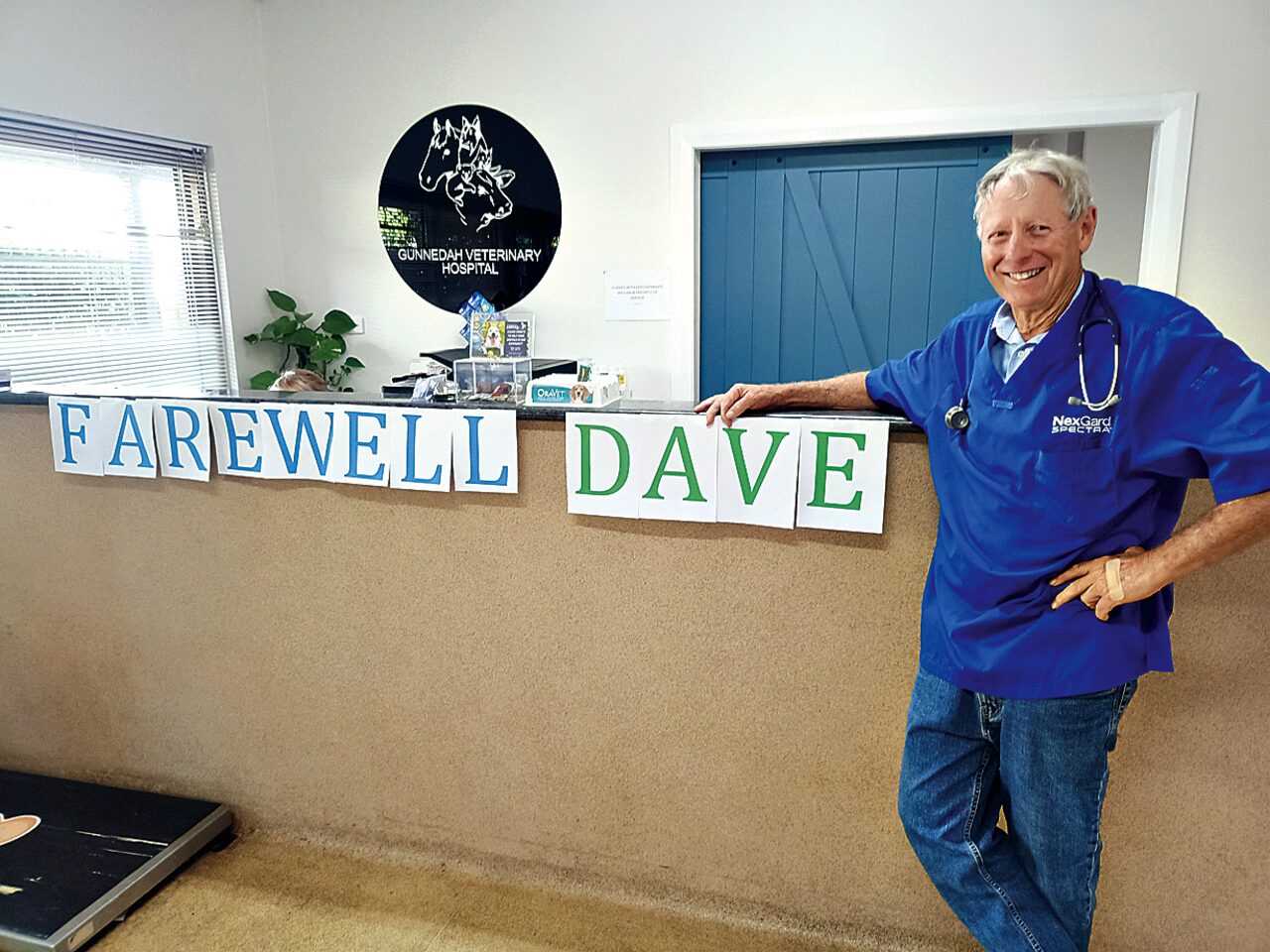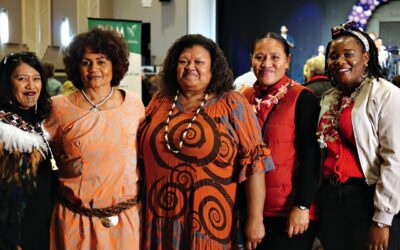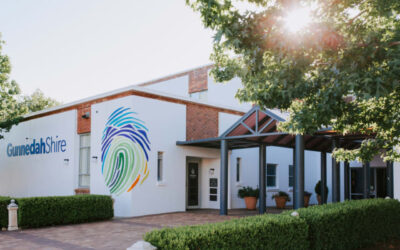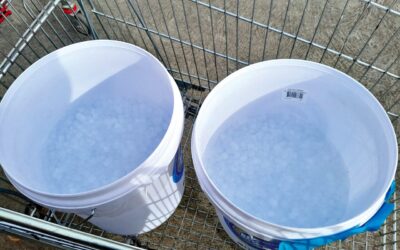After 48 years tending to animals big and small in the region, local veterinarian David Amos has said his last goodbyes to customers and staff at Gunnedah Veterinary Hospital.
Mr Amos is officially hanging up his stethoscope to pursue more leisurely pursuits such as travelling and more family time.
“There’s a little trepidation,” he said alongside wife Marg during one of his last days at the veterinary hospital.
“I have a lot of jobs lined up, I want to see the family more … we’ll be well occupied.”
Mr Amos has been working about two days a week since selling the practice three years ago to fellow veterinarian, Chelsea Mitchell.
“I went from being the boss to being the boy,” he remarked.
Mr Amos moved to Gunnedah in 1977 after starting his veterinary career in Western Australia.
“My cousin was also a vet working here … so I came to fill in for a while and never left,” he said.
He started in Gunnedah alongside Phil Knight on a small allotment “the other side of the rugby ground” on Wandobah Road.
“Back then the practice was almost all horses,” Mr Amos recalled.
“We did some cattle work, some small animals but primarily it was horses – thoroughbred studs and ponies.”
At the time, the small team included just a handful of vets and assisting staff.
In 2007 the veterinary practice moved to its current site on Barber Street – which in a former life was home to Honeybuds café.
The practice has expanded significantly since then and now boasts a team of about 20 staff.
Mr Amos said much of the expansion has been driven by the move into small animals.
“There’s a whole different attitude to animals and pets now,” Mr Amos said.
“People wouldn’t spend much money on their small animals but that’s changed dramatically.”
He said the demand for small animal care went into overdrive post-COVID but has been on a steady rise with higher wages in town.
“People have more disposable income, and there’s lot more money in town from the mines,” he said.
“People are more prepared to spend.
“Previously people didn’t have nearly the same income.
“You can’t discount the amount of work the mines put into this town.”
Mr Amos said there have been great memories from his time in the veterinary industry – such as the time he anaesthetized a ravenous, heavily-pregnant python.
The Gunnedah vet was working as a locum in London at the time during a six-month stint in the United Kingdom.
“It was a Saturday morning,” Mr Amos recalled, “And the nurse left and said there’s someone with a cat to look at, and somebody with a snake.
“I went out there and sitting there with this styrofoam box on his knee was this bloke who said: ‘I’m the one with the snake’.
“He had this big python out of India somewhere and she was egg-bound.
“She also hadn’t eaten for five months and was a bit worried.
“We took her out and she promptly bit him on the hand and it was like she’d been at him with a razor blade.
“We managed to give the snake some anaesthetic and take some x-rays.”
Asked if there was an easy way to give a snake anaesthetic, Mr Amos explained how the reptile is carefully placed in a bag and gas filtered in.
“You judge the anaesthetic by putting them on their back and when they can’t turn over again, they’re anaesthetized,” he said with a grin.
Mr Amos said the veterinary industry has faced its share of challenges over the years – some which continue today with no real solutions in sight.
“There’s far too much access for the public to drugs,” Mr Amos said.
“If they can’t get it legally, they get them illegally which is causing huge issues in things like antibiotic resistance.”
The experienced veterinarian believes Australia is still “badly undermanned” in the event of another exotic disease outbreak.
“Equine influenza really exposed our lack of preparedness,” he said of the 2007/08 outbreak. The government described it as the “most serious emergency animal disease Australia has experienced in recent history”.
At its peak, 47,000 horses were infected in NSW on 5943 properties.
“They were dragging people out of retirement saying ‘please help’,” Mr Amos said.
“If it wasn’t for the hot, dry summer, we would have never got rid of it.
“The weather saved us, not the response.”
Mr Amos is not confident the nation is any more prepared now for another similar outbreak.
“There’s no votes in agriculture sadly, so governments dispense with doing services for agriculture,” he said.
“Government don’t take much notice – they blow with the breeze and the breeze always blows to the city.”
Nevertheless, Mr Amos described veterinary science as a “rewarding career” which had offered him immense opportunities over the years.
He wished the incoming team at Gunnedah Veterinary Hospital all the best for the future.
To order photos from this page click here



